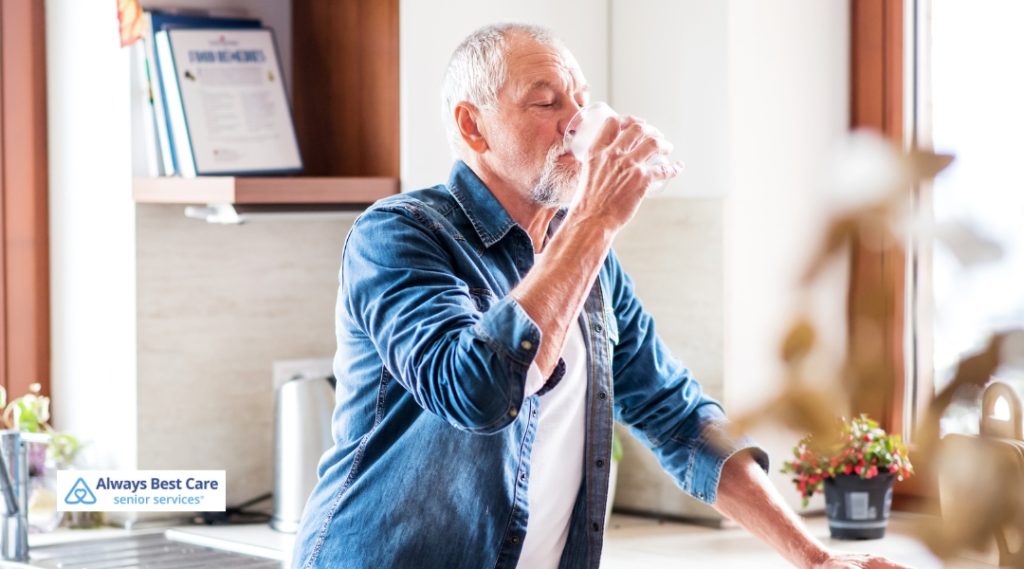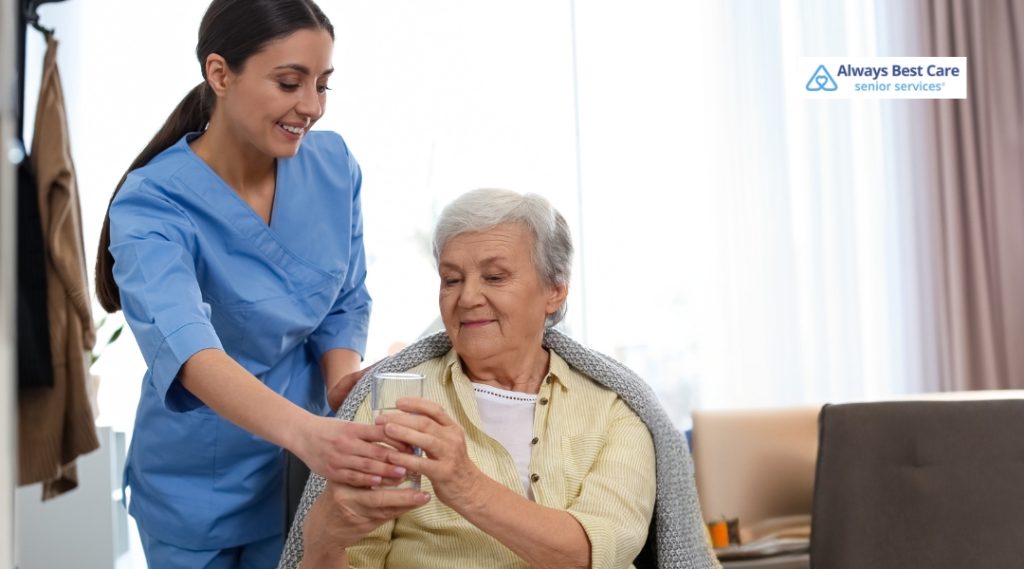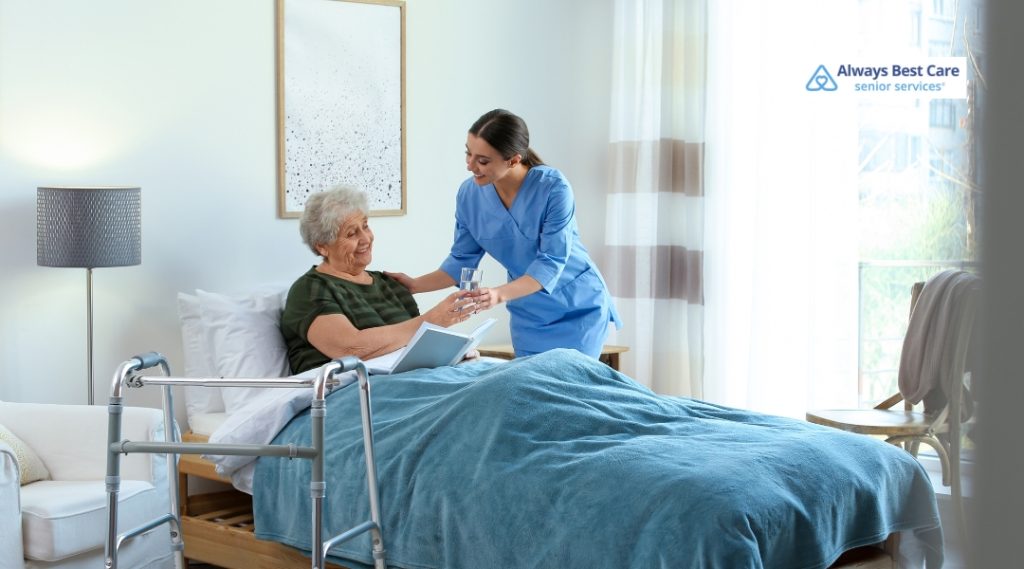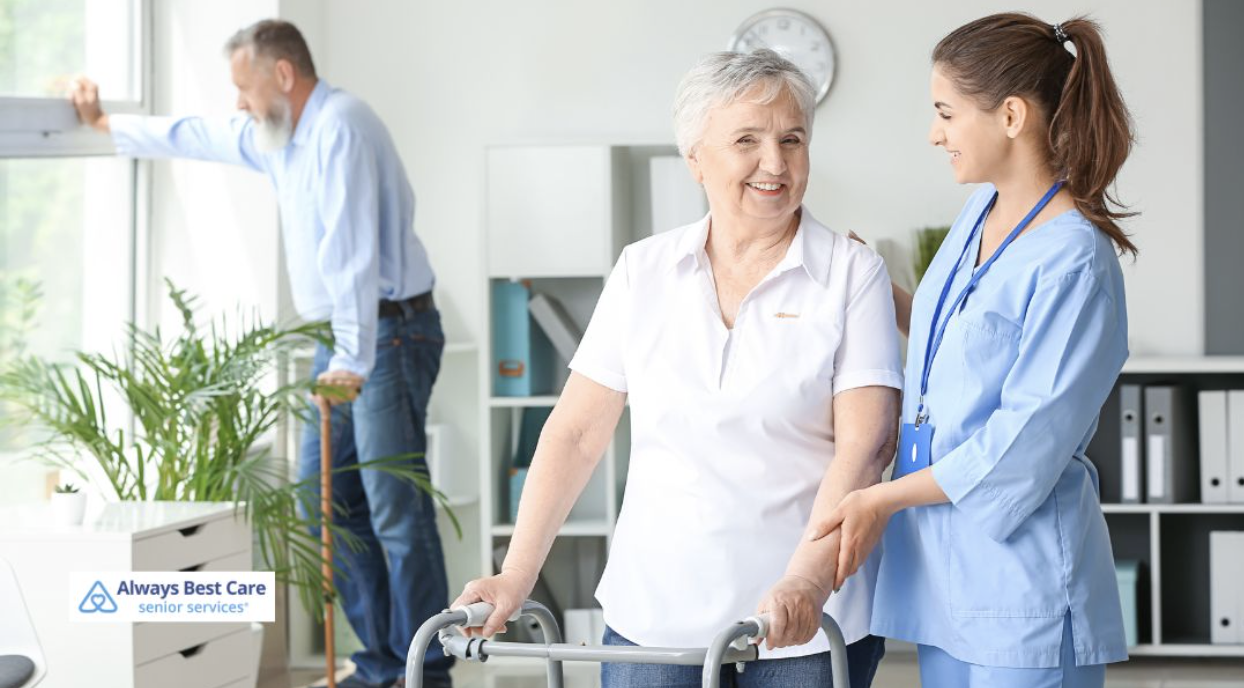Stay Sharp and Active: The Surprising Power of Hydration for Seniors

Staying hydrated isn’t always at the top of our to-do lists, but for seniors, it’s a game-changer.
As we age, our bodies undergo natural changes that can increase our risk of dehydration.
Many seniors simply don’t consume enough water throughout their day.
With National Hydration Day approaching, there’s no better time to highlight this often-overlooked aspect of senior health.
Understanding water’s vital role can empower families and caregivers to help senior loved ones stay vibrant, alert, and healthy through proper hydration.
What you will learn:
- Why hydration is especially important for seniors and how it impacts energy, mental clarity, digestion, and mobility.
- Simple, practical tips to help seniors stay hydrated and make water intake more enjoyable every day.
- How caregivers and families can recognize dehydration signs and support loved ones in building healthy hydration habits.
Table of Contents
Why Water Matters More for Seniors
Water isn’t just important; it’s essential! Making up more than half of our bodies, it plays a starring role in nearly every bodily function.
For seniors, maintaining proper hydration is critical for several key reasons:
- Boosting Energy Levels.
Proper hydration helps maintain healthy blood volume, which efficiently transports oxygen, supporting better stamina and making daily activities more manageable. - Sharpening Mental Clarity.
For seniors, especially those navigating cognitive challenges, inadequate fluid intake might worsen confusion or disorientation. Drinking enough water helps the brain function at its best, maintaining mental sharpness.

- Supporting Digestive Wellness.
Water keeps things moving! It’s absolutely essential for proper digestion and preventing constipation, a common complaint among seniors. Without sufficient hydration, the digestive system slows down, potentially causing discomfort that affects both appetite and nutritional health. - Maintaining Joint and Muscle Function.
Proper hydration supports healthy muscles and joints by keeping tissues well-lubricated. Seniors who stay hydrated often experience less stiffness and joint discomfort, helping them maintain mobility and independence.
5 Practical Tips for Better Hydration
If your loved one struggles with drinking enough water, here are some down-to-earth strategies that really work:
- Mix it up with hydrating alternatives like herbal teas, milk, broth-based soups, or water infused with fruits and herbs.
- Incorporate water-rich foods such as watermelon, cucumber, oranges, and strawberries into daily meals.
- Set up gentle hydration reminders throughout the day, especially during medication times.
- Use colorful or easy-grip cups and bottles to make drinking water more appealing and accessible.
- Check urine color: Pale yellow typically signals proper hydration, while darker shades suggest more fluids are needed.

How We Can Help at Always Best Care of Tempe
When staying hydrated becomes challenging for your aging loved one, we’re here to help. At Always Best Care of Tempe, our professional caregivers can make a world of difference. We provide expert care services delivered right in the comfort of your loved one’s home.
Our team can assist with meal preparation, offer regular hydration reminders, and monitor for signs of dehydration. We’ll also help address common barriers like bathroom accessibility or managing medications that might affect fluid levels.
FAQ About Senior Hydration
Q: How much water should seniors drink daily?
A: While needs vary by individual, most seniors should aim for 6-8 cups of fluids daily, including water and other hydrating beverages.
Q: What are the warning signs of dehydration in seniors?
A: Watch for dry mouth, headaches, dizziness, dark urine, fatigue, confusion, and decreased urination.
Q: Can coffee and tea count toward daily fluid intake?
A: Yes, though in moderation. While mildly diuretic, they do contribute to overall hydration. Balancing them with plain water is ideal.
Q: How can I help a senior who doesn’t like drinking water?
A: Try flavoring water with fruits, offering water-rich foods, using favorite cups, or setting up a regular schedule for sipping throughout the day.

Ready to Boost Senior Wellness? Contact Us for Personalized Hydration Solutions
At Always Best Care of Tempe, we’re committed to helping your loved ones maintain the safe, independent, and dignified lifestyle they deserve.
Contact Always Best Care of Tempe at (480) 676-1446 to learn more and schedule your free consultation.





